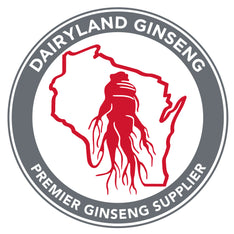Grow Your Own Ginseng Garden with Premium Seeds and Rootlets
Introduction
In recent years, the interest in ginseng has skyrocketed. This ancient herb, known for its medicinal properties, is now a coveted addition to home gardens and small farms alike. If you're a ginseng grower, small farmer, or herbal enthusiast, you've likely considered adding this powerful plant to your collection. In this article, we'll guide you through everything you need to know about ginseng seeds and rootlets for sale. Whether you're a seasoned grower or a curious novice, you'll find valuable insights on cultivating this remarkable herb.
Why Ginseng?
Ginseng is more than just a plant; it's a powerhouse of health benefits. Traditionally used in Asian medicine, ginseng boosts energy, reduces stress, and enhances overall well-being. But what makes it truly special is its versatility. From teas to capsules, ginseng can be consumed in various forms, making it a staple in natural and holistic health practices.
The Benefits of Growing Ginseng
Growing your ginseng comes with a plethora of benefits. Firstly, it gives you control over the quality of the herb. You'll know where it comes from and how it's been treated. Secondly, it's cost-effective. Buying ginseng products can be expensive, but growing your own allows you to enjoy its benefits without breaking the bank. Lastly, it's a rewarding experience. Watching your ginseng plants thrive under your care is incredibly satisfying.
Types of Ginseng Seeds and Rootlets
When it comes to ginseng, there are several types of seeds and rootlets available. American ginseng (Panax quinquefolius) and . These seeds have are the most common. American ginseng is known for its cooling properties, while Asian ginseng is more stimulating. You can choose the type that best suits you depending on your needs.
Choosing Quality Seeds
The quality of your ginseng seeds is crucial for a successful yield. Look for You can choose the type that best suits you depending on your needs. These seeds have undergone a process to break dormancy and are ready for planting. At Dairyland Ginseng, we offer premium American ginseng seeds that are stratified and treated to ensure optimal growth.
Preparing the Soil
Ginseng thrives in well-drained, rich, and loamy soil. Its ideal pH level is between 5.5 and 6.0. Proper soil preparation is essential before planting. Remove any weeds and ensure the soil is loose and aerated. Adding organic matter like compost can improve soil fertility and structure, providing a better environment for your ginseng plants.
Planting Ginseng Seeds
Planting stratified seeds requires attention to detail. The best time to plant is in the fall, as the seeds need a period of cold stratification to germinate in the spring. Sow the seeds about half an inch deep and cover them with a thin soil and leaf mulch layer. This helps retain moisture and protects from pests.
Caring for Your Ginseng Plants
Once planted, ginseng requires minimal care. Keep the soil consistently moist but not soggy. Ginseng plants prefer shaded areas, so growing them under trees can provide the dappled sunlight they need. Regularly check for any signs of pests or diseases and take appropriate action if required.
Harvesting Ginseng
Patience is key when harvesting ginseng. It typically takes 4-6 years for ginseng roots to mature. Harvesting too early can result in less potent and smaller roots. Once ready, carefully dig around the plant to avoid damaging the roots. Clean them thoroughly and allow them to dry before use.
Using Ginseng Rootlets
Ginseng rootlets are young ginseng roots that can be transplanted to continue growing. They offer a head start compared to seeds, which've already undergone initial growth stages. Planting rootlets follows similar steps to planting seeds, with the advantage of a shorter wait time for mature roots.
Where to Buy Ginseng Seeds and Rootlets
Finding a reliable source for ginseng seeds and rootlets is essential. Dairyland Ginseng offers a variety of high-quality seeds and rootlets, perfect for beginners and experienced growers. With over 40 years of experience, our family-owned company ensures you receive the best products for successful cultivation.
Community and Support
Joining a community of ginseng growers can be incredibly beneficial. Sharing experiences, tips, and advice can help you overcome challenges and improve your growing techniques. Online forums, social media groups, and local gardening clubs are excellent places to connect with fellow enthusiasts.
Ginseng and Sustainability
Growing ginseng responsibly is crucial for its sustainability. Overharvesting in the wild has led to a decline in natural populations. By cultivating ginseng at home or on small farms, you contribute to its conservation. Additionally, organic and eco-friendly practices ensure you produce high-quality, sustainable ginseng.
Investing in Ginseng
Ginseng farming can be a profitable venture. High-quality ginseng roots fetch a premium price in the market. You can create a lucrative side business by investing time and effort into growing ginseng. Plus, the satisfaction of producing your medicinal herb adds immense value.
Conclusion
Ginseng is a remarkable herb with numerous health benefits and an exciting potential for growers. You can successfully cultivate your ginseng garden by following the steps outlined in this guide. Remember, quality seeds, proper soil preparation, and attentive care are crucial to thriving ginseng plants. Whether you're a small farmer, herbal enthusiast, or someone looking to explore new gardening ventures, ginseng offers a rewarding experience.
To start your ginseng-growing journey, check out Dairyland Ginseng for premium seeds and rootlets. Join our community of passionate ginseng growers and discover the joy of cultivating this ancient herb. Happy growing!

Leave a comment